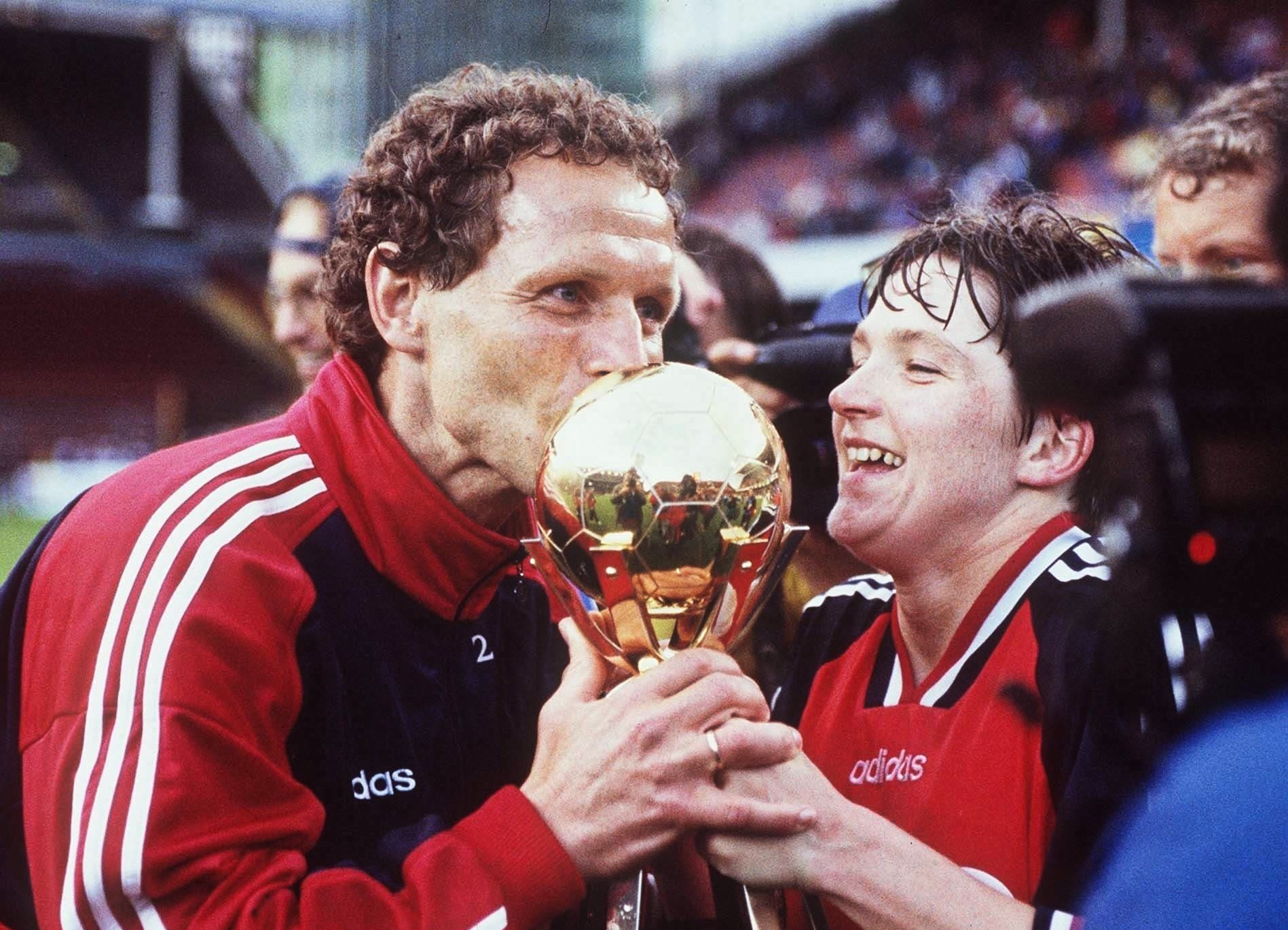Even Pellerud, a titan of women's coaching, talks about winning the Euros and the World Cup
Even Pellerud is one of the few head coaches who can tell that he won both a European Championship and a World Cup. He can also say that he coached two other European finals and won an Olympic bronze medal. Not bad.
The 68-year-old is one of the most decorated managers in the history of women's football at international level, with all his successes with his native Norway, while he also spent nine years with Canada. head coach where he advanced the development of women's football across the Atlantic.
Through an hour-long interview from his home in Norway, Pellerud reflects on what he constantly describes as a "lucky" career - not necessarily in terms of hard work, but one he has the privilege of. to have enjoyed so much success, especially when he explains how little he knew about women's football when the Norwegian Football Federation asked him to lead the women's national team in the late 1980s.
After retiring from the game in 1986 and taking over as manager of the team he had last played for, it was in 1989 that Pellerud's coaching career took a turn. new path, a path he would not turn away from. "It was really a strange incident," he laughs. “I was asked to meet the federation. My name had started to grow a bit, but I expected it might be one of the youth men's teams.
"During the meeting, they offered me the position of the women's team and it was a big shock for me. I think I had the right attitude for it, but I had not seen a women's match of my life, not even on TV."
He adds, "They seemed to think I was the man for the job. I was ready to move on, so I was motivated and wanted to be part of that environment, grow something, that's what really pushed me to do it. All I asked for was that I only have a two-year contract, because I didn't know how it was going to be."
Two years would become seven, and a period of unprecedented success for Norway which saw Pellerud lead their country to a European Championship in 1993, and after failing in the final of the first World Cup in 1991, the biggest prize of all two years later in 1995, plus an Olympic bronze medal a year later in 1996, Pellerud's final tournament of his first stint with Norway.
"In short, I fell in love with the team," he smiles. “We had a very strong team, a lot of success, I had a lot of fun. It was a great team to coach, such characters, such committed players. They were fit, well trained, just a fun team to work with and there was a lot of work to do, but it was a great job. It ended up being a fantastic seven years. »
Pellerud inherited a squad that included players who would go down in history. Captain Heidi Støre, future head coach of the British team Hege Riise, one of Europe's best goalkeepers Bente Nordby and star striker Linda Medalen, among many others.
Norway had won the first unofficial World Cup in 1988, but with a lack of images, analysis or anything a modern coach would now have access to, a newbie to women's football didn't know really where his squad of players was heading to the World Cup, so how did he do it?
"That's a good question," he exclaims. "The Norwegian players in the league played in front of 50 spectators, in small halls, without media, they played games which we won quite easily with the national team. It was only when we met Germany, Sweden or Denmark that we were arrested."
Pellerud therefore took his team to Winnipeg, Canada for a tournament against said hosts and the United States in 1990 to better understand the challenges he would face at the inaugural World Cup in China, which was only 'one year later. the line.
"It was the...


Even Pellerud is one of the few head coaches who can tell that he won both a European Championship and a World Cup. He can also say that he coached two other European finals and won an Olympic bronze medal. Not bad.
The 68-year-old is one of the most decorated managers in the history of women's football at international level, with all his successes with his native Norway, while he also spent nine years with Canada. head coach where he advanced the development of women's football across the Atlantic.
Through an hour-long interview from his home in Norway, Pellerud reflects on what he constantly describes as a "lucky" career - not necessarily in terms of hard work, but one he has the privilege of. to have enjoyed so much success, especially when he explains how little he knew about women's football when the Norwegian Football Federation asked him to lead the women's national team in the late 1980s.
After retiring from the game in 1986 and taking over as manager of the team he had last played for, it was in 1989 that Pellerud's coaching career took a turn. new path, a path he would not turn away from. "It was really a strange incident," he laughs. “I was asked to meet the federation. My name had started to grow a bit, but I expected it might be one of the youth men's teams.
"During the meeting, they offered me the position of the women's team and it was a big shock for me. I think I had the right attitude for it, but I had not seen a women's match of my life, not even on TV."
He adds, "They seemed to think I was the man for the job. I was ready to move on, so I was motivated and wanted to be part of that environment, grow something, that's what really pushed me to do it. All I asked for was that I only have a two-year contract, because I didn't know how it was going to be."
Two years would become seven, and a period of unprecedented success for Norway which saw Pellerud lead their country to a European Championship in 1993, and after failing in the final of the first World Cup in 1991, the biggest prize of all two years later in 1995, plus an Olympic bronze medal a year later in 1996, Pellerud's final tournament of his first stint with Norway.
"In short, I fell in love with the team," he smiles. “We had a very strong team, a lot of success, I had a lot of fun. It was a great team to coach, such characters, such committed players. They were fit, well trained, just a fun team to work with and there was a lot of work to do, but it was a great job. It ended up being a fantastic seven years. »
Pellerud inherited a squad that included players who would go down in history. Captain Heidi Støre, future head coach of the British team Hege Riise, one of Europe's best goalkeepers Bente Nordby and star striker Linda Medalen, among many others.
Norway had won the first unofficial World Cup in 1988, but with a lack of images, analysis or anything a modern coach would now have access to, a newbie to women's football didn't know really where his squad of players was heading to the World Cup, so how did he do it?
"That's a good question," he exclaims. "The Norwegian players in the league played in front of 50 spectators, in small halls, without media, they played games which we won quite easily with the national team. It was only when we met Germany, Sweden or Denmark that we were arrested."
Pellerud therefore took his team to Winnipeg, Canada for a tournament against said hosts and the United States in 1990 to better understand the challenges he would face at the inaugural World Cup in China, which was only 'one year later. the line.
"It was the...
What's Your Reaction?






















